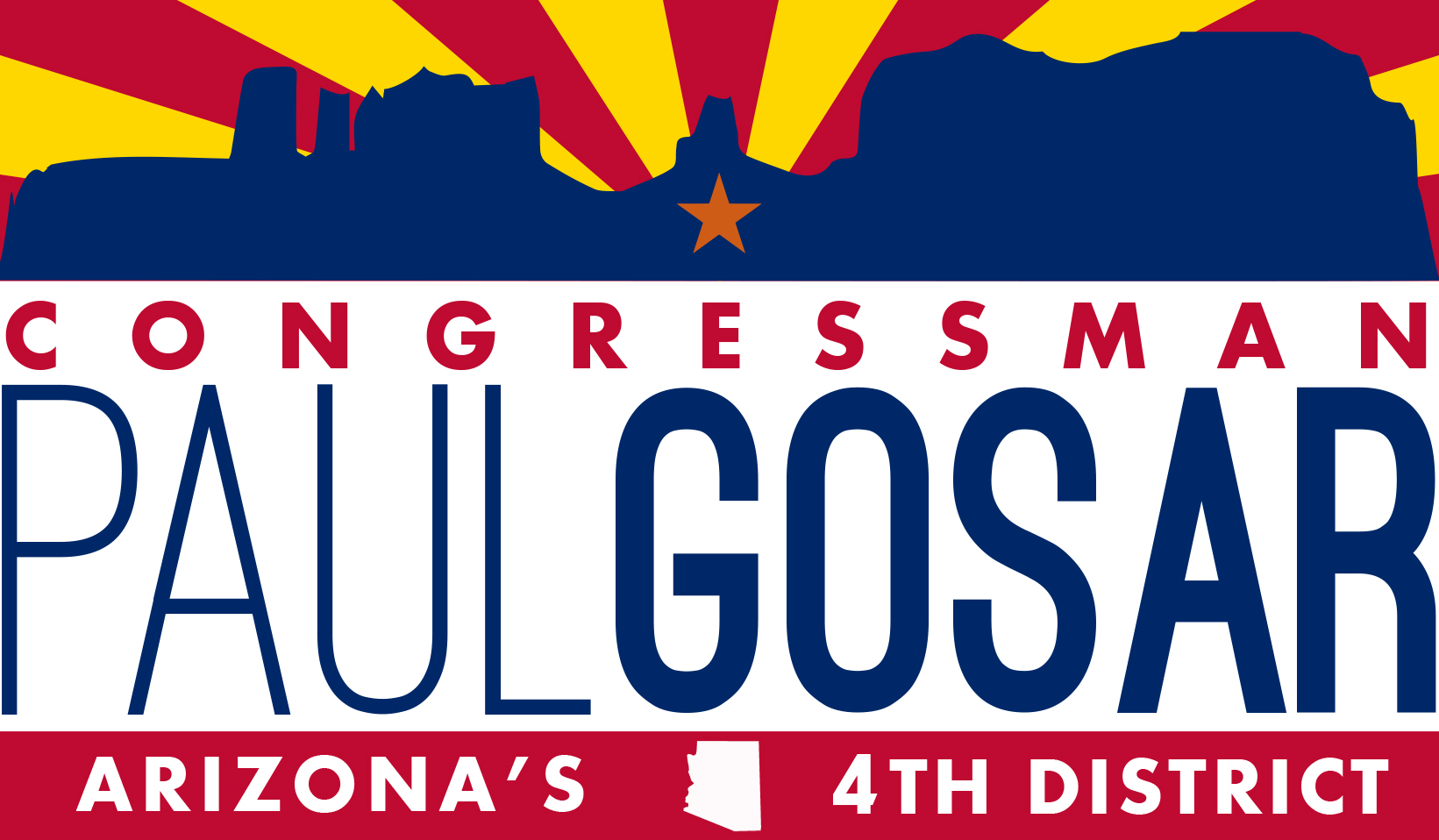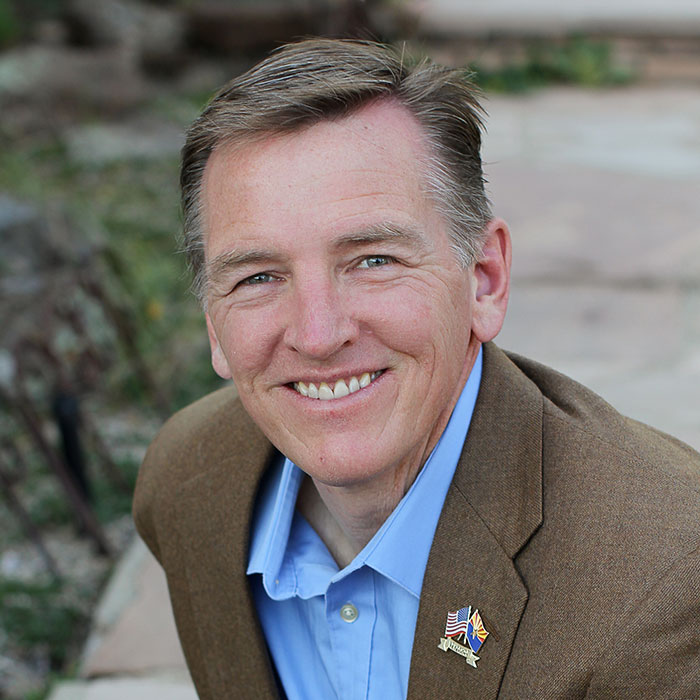|
Today, U.S. Congressman Paul A. Gosar, D.D.S. (AZ-04) released the following statement after introducing H.Con.Res.26, the Compact for a Balanced Budget Amendment:
“For far too long, Washington politicians have recklessly squandered taxpayer money and spent beyond our nation’s means. The federal government has racked up a staggering $18 trillion plus debt and has surpassed our own annual gross domestic product. This insurmountable burden is already shackling future generations and will continue to do so until we demonstrate real leadership and take bold action to put an end to this irresponsible behavior.
“In the past, members of Congress have introduced a variety of Balanced Budget Amendments and I have supported almost all of them. Unfortunately, there is not enough agreement in Washington to make those important efforts a reality. Now, the time has come for states to have a true voice in this process and for America to utilize an innovative approach to our budgetary challenges that does not require the president’s signature.
“When Washington fails to stop out-of-control spending, the Constitution empowers the states to act. Using an agreement among the states called an ‘interstate compact,’ the Compact for a Balanced Budget treats our nation’s spending problem as the constitutional crisis it is and advances a powerful Balanced Budget Amendment. My legislation effectuates this agreement and ensures the state-initiated constitutional amendment process exclusively advances a balanced budget amendment and nothing else.
“Our founders empowered the states with the unique ability to initiate the amendment process if Congress is incapable of doing so on its own. We owe it to our children and grandchildren to have the courage and commitment to ensure that the future prosperity of this great nation is not stifled by the debts of our past.”
Background
The full text of the Compact for a Balanced Budget can be found HERE.
The Compact for a Balanced Budget consolidates everything Congress and the states do into two overarching pieces of legislation—one congressional resolution and one interstate compact joined by thirty-eight states. This approach dramatically reduces the time and resources needed to achieve a Balanced Budget Amendment.
An interstate compact is the proper vehicle to advance this effort as it transforms the otherwise cumbersome state-initiated amendment process into a ‘turn-key’ operation. The Compact empowers states and streamlines the actions necessary so all elements can be passed nationwide in a single session.
The Compact does require congressional consent to work, but such consent is achieved by simple majority passage of a resolution, which consolidates everything Congress must do in the Article V process into a single bill that includes the necessary safeguards.
At least twelve states have filed or will file legislation to join the Compact for a Balanced Budget, which was initially formed by Alaska and Georgia last year. These states include but are not limited to: Alabama, Arizona, Arkansas, Florida, Michigan, Mississippi, New Mexico, North Carolina, North Dakota, Oklahoma, Texas and Wyoming. Recently, the Wyoming State House passed the Compact for a Balanced Budget 45-15.
Original cosponsors that joined Rep. Gosar in introducing this legislation include: Representatives Jeff Duncan, Walter Jones, Matt Salmon, Ryan Zinke, Kevin Cramer, Don Young, John Culberson, Cynthia Lummis, Jim Bridenstine, Barry Loudermilk, Joe Wilson, David Schweikert, Dan Newhouse and Mo Brooks.
The following organizations support the Compact: Americans for Tax Reform, Cato Institute, Goldwater Institute, Heartland Institute, Federalist Society, American Legislative Exchange Council, John Locke Foundation and the Foundation for Economic Education.
###

|

